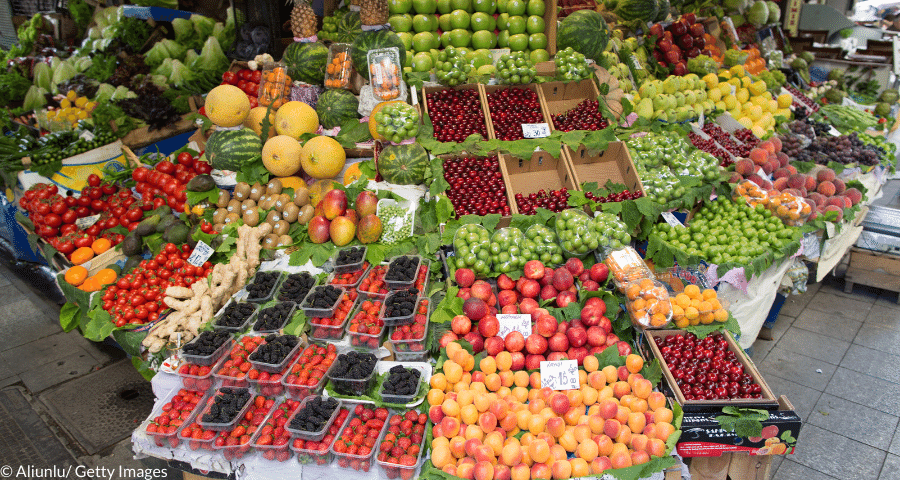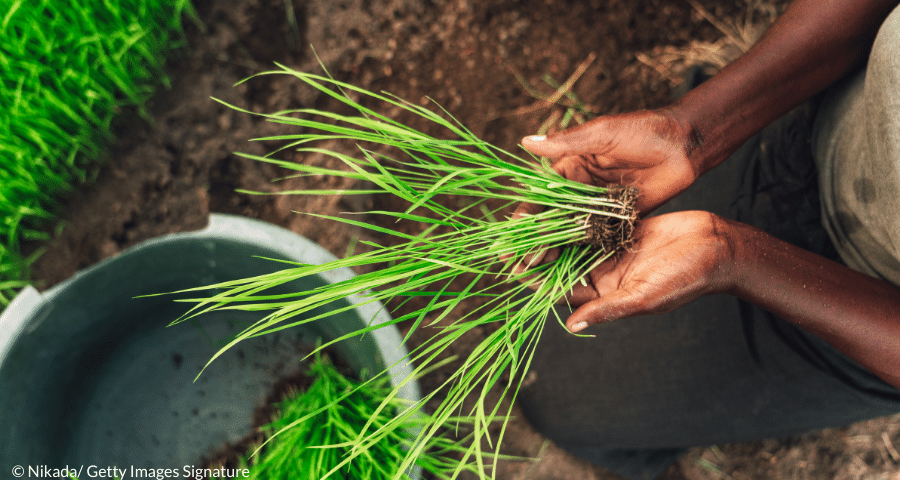Tell us a little about yourself …
I'm an agricultural, development, and resource economist. My fundamental research objective is to help reduce unnecessary human suffering manifest in ill health, malnutrition, poverty, vulnerability to manmade and natural disasters, and the degradation of the natural resources that support many poor people’s future well-being. My group’s work focuses mainly on rural populations in Africa and Asia who are disproportionately affected by poverty, malnutrition, conflict, and natural disasters. But we have an interest in tackling the economics of social injustice wherever it occurs, and increasingly we work in the United States as well. My research and teaching explore why avoidable injustice and suffering continue to disfigure a rich, technologically advanced world and what individuals, communities and institutions can do to improve matters.
What got you interested in nutrition?
Malnutrition is an especially pernicious form of unnecessary human suffering because it not only directly injures people but also because it induces so many follow-on social, health, and environmental problems. In a world of unprecedentedly plentiful food supplies, no one needs to be malnourished. Policy choices – by governments, firms, NGOs, and multilateral agencies – matter and the analytical toolkit of economics can be very useful in helpful improve decision-making and reduce unnecessary malnutrition. Economics emphasizes tradeoffs and rigorous analysis of the causal factors behind patterns we observe in the world around us. A clear, data-and-theory-based understanding what interventions cause improvements in living conditions, including nutritional outcomes, and what one must give up in order to enjoy those benefits has, in my experience, considerable impact on decision-makers in organizations of all sorts. Good economics generates such narratives and can help accelerate progress.
What do you work on, and how does it relate to public private engagement for nutrition?
My research group works on a wide range of nutrition-related topics, especially those associated with food security and resilience measurement and monitoring, international food aid and domestic food assistance programs, and well-being dynamics. I work and teach in Cornell's undergraduate business school (the Dyson School), which brings me into close contact with the private sector. I have also worked extensively with a range of international and local development and humanitarian NGOs, as well as multilateral and bilateral agencies working globally, and local and state agencies within the US.

What is exciting about your work?
I am very excited by the chance to do research that informs public and private sector policy and can thereby help people struggling to overcome structural disadvantages to achieve food security. Because university professors generally do little directly to contribute to this objective, my approaches are indirect, through (i) teaching and mentoring students, (ii) outreach to community groups, governments, international organizations, media, non-profits, and private firms, and (iii) rigorous scholarship to inform my teaching, outreach and other researchers’ discoveries. My research group’s work emphasizes empirical research in development microeconomics, with significant threads of agricultural, environmental and resource economics mixed in, and significant collaboration with scholars from a wide range of biophysical and social science disciplines. We undertake a good deal of primary, field-based research, but also employ secondary data where appropriate. We make all of our work and data publicly available and seek peer review of everything we do as a means of quality control.
What is challenging about it?
Grappling with today’s disparities can be a challenge. In this world of plenty, almost half the world's nearly-eight billion people live on five dollars a day or less. Between one third and one half suffer undernutrition due to insufficient intake of critical micro- or macro-nutrients. Almost one child in five lives in acute poverty, a disturbing fact to this father of five. Natural disasters appear to be growing in frequency and intensity, and affecting more people than ever, especially the poorest people in the world’s most remote places. Market and government failures too often coexist with community breakdown.
Another challenge is that good data remain hard to come by. Doing rigorous causal inference to identify what really works and why is likewise hard. And the politics of policy change are complicated. But ~30 years of experience in this space tells me that patient, careful work can translate into meaningful change and measurable improvements.

What’s the latest news or a recent success?
The index-based livestock insurance (IBLI) product, which a multi-institutional team of us designed and launched a decade ago, has now scaled into a nationwide Kenya Livestock Insurance Program and been adapted and launched in multiple other countries, helping protect pastoralist and agro-pastoralist households' food security in the face of otherwise-catastrophic droughts.
What’s next?
With a range of collaborators we're now embarking on new work that aims to improve agricultural productivity and food security in rural Senegal while also helping to reduce infectious disease burdens, especially schistosomiasis (a disease caused by parasitic worms). This tackles the problem of poverty-disease traps that appear associated with agricultural development in many rural communities of the Global South.
Has this work made you change your mind about anything, or has anything surprised you?
Much of my group's work answers questions to which we didn't know the answer in advance. We didn't know, for example, whether food aid recipients would prefer locally procured food aid rations to those shipped from the US, but found in a multi-country study that they do. Not all research results surprise us but many do. And if we don't change our minds about some things as we go, then we're not learning very well. I'm constantly learning from our research subjects, from my students and collaborators, and from other scholars and development and humanitarian professionals.
What is your favourite food or meal to share with family or friends?
In the US, we celebrate Thanksgiving in late November every year, as a time to gather family and friends for a feast to celebrate our many blessings. That is my favorite meal. The food is wonderful – green beans, potatoes, sweet potatoes, turkey, fruit pies, etc. – but it's mainly about the fellowship and the opportunity to reflect and express gratitude.
